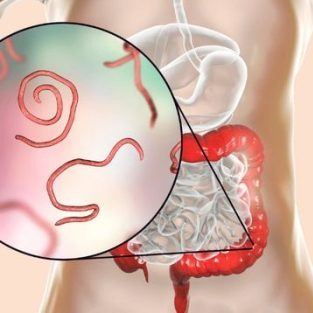
Chronic Stress Management: 10 Ways Stress Impacts Health
Chronic stress management is essential for protecting your physical, mental, and emotional health. Chronic stress occurs when stressors are prolonged or repeated, leaving the body in a constant state of heightened alert. It can arise from factors like ongoing work pressure, financial difficulties, relationship conflicts, caregiving responsibilities, health challenges, or trauma. Unlike acute stress, which is short-lived, chronic stress continues over time and can overwhelm the body’s ability to recover.
While acute stress offers short-term benefits, like sharpening focus, chronic stress causes long-term damage, affecting brain structure, immunity, digestion, and more. In this blog, we’ll explore the hidden ways stress impacts the body and mind—and why it is crucial to have a personalized chronic stress management plan, which is key to staying healthy.
1. The Impact of Chronic Stress on Brain Structure and Emotional Control
Chronic stress physically alters the brain’s structure and size. It shrinks the prefrontal cortex—the part of the brain responsible for self-control and emotional regulation—making it harder to manage emotions and make rational decisions. Simultaneously, it enlarges the amygdala, the brain’s fear center, making individuals more reactive to stress and creating a cycle of heightened sensitivity.
2. Chronic Stress Shortens Telomeres and Accelerates Aging
Research shows that stress shortens telomeres, the protective caps on the ends of chromosomes. Shortened telomeres accelerate aging and increase the risk of age-related diseases like heart disease and Alzheimer’s. Managing stress is essential for slowing down this biological process.
3. Long-Term Stress Heightens Food Cravings and Affects Taste
Long-term stress can heighten the sensitivity of taste buds, causing increased cravings for salty, sweet, and fatty foods. This can lead to overeating and weight gain, particularly when diminished willpower is also a factor during stressful times.
4. Chronic Stress Alters Gut Health via the Gut-Brain Axis
The gut-brain axis connects the digestive system to the brain, creating a two-way communication network. Chronic stress disrupts the balance of good and bad bacteria in the gut, leading to digestive issues, inflammation, and mental health challenges like anxiety and depression.
5. Chronic Stress Impairs Memory and Increases Alzheimer’s Risk
While acute stress can enhance memory and focus, chronic stress impairs memory over time. It damages brain regions essential for learning and recall, increasing the risk of memory-related conditions such as Alzheimer’s disease.
6. Chronic Stress Weakens Immunity and Reactivates Dormant Viruses
Stress compromises the immune system, making it more difficult for the body to combat infections. It can also reactivate latent viruses—like herpes and EBV—that remain dormant in the body, causing unexpected health issues.
7. The Connection Between Stress and Premature Hair Graying
Scientific research shows that stress can speed up hair graying by triggering the production of noradrenaline, which depletes pigment-producing cells in hair follicles. While genetics play a role, chronic stress accelerates the process.
8. Chronic Stress Can Change How Your Genes Function
Ongoing stress can change how certain genes work, especially the ones that control inflammation in the body. This helps explain why chronic stress is linked to health issues like autoimmune diseases, heart problems, and inflammatory disorders.
9. How Stress Impacts Fertility in Men and Women
Chronic stress negatively affects reproductive health. In women, it can cause irregular menstrual cycles and affect ovulation. In men, stress reduces sperm production and testosterone levels, impacting fertility and overall reproductive health.
10. Stress Can Create and Worsen Skin Conditions Like Acne and Eczema
Stress increases the production of cortisol, the body’s primary stress hormone, which can worsen skin conditions like acne, eczema, and psoriasis. It also slows down the healing process, making it harder to manage these conditions effectively.
Chronic Stress Management for Better Health
Everyone’s triggers are different, so there’s no one-size-fits-all approach to chronic stress management—it varies from person to person. The root causes of stress differ, and so does the best way to manage it. Some areas we explore include technology habits, communication issues, exercise, nutrition, trauma, unhealthy routines, sleep problems, hormonal imbalances, community support, work-life balance and satisfaction, and emotional or physical support needs.
We help you discover better ways to handle these challenges by introducing new skills, therapies, coaching, counseling, and stress reduction techniques. Our supportive wellness community connects you with others who have also faced similar experiences, fostering a sense of belonging and understanding. Our goal is to find and address the root cause of your stress, so it no longer interferes with your health, allowing you to feel good and start enjoying life again.
Conclusion
Chronic stress can affect every part of your health, from brain function to skin and reproductive health. The good news is that you don’t have to manage it alone. With the right support and strategies, you can break the cycle of chronic stress and take control of your well-being.
Let us help you find healthier ways to manage stress—complete your complimentary Root Cause Analysis health assessment today for free, personalized tips, tools, and advice tailored to your unique situation.



